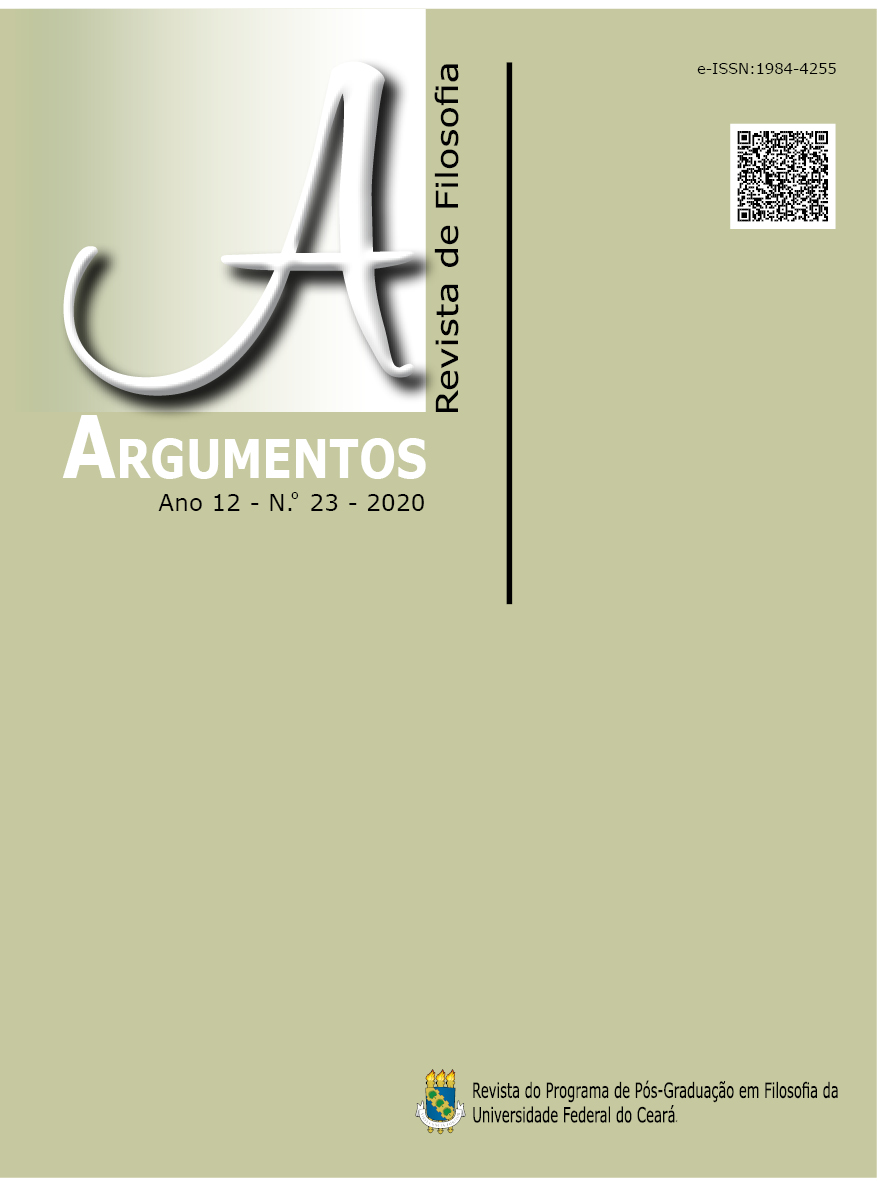The lucidity of the insane: Nietzsche and others
DOI:
https://doi.org/10.36517/Argumentos.23.9Keywords:
Insanity. Culture. Cogito. Nietzsche.Abstract
Lunacy has always been reflected upon by Western thinkers. The acceptance of its putative causes has varied across centuries and cultures. In all of them, it has been difficult, above all, to establish boundaries beyond which insanity is definitive. Plato considered insanity to be the manifestation of a mystic spirit that inspired but a few. Medieval and Renaissance thought admitted lunacy’s nature to be good or bad, divine or diabolic, religious, moral or health related. Early ethnopsychiatry considered culture and personality unimportant to explain lunacy. Similarly, Freud thought that lunacy lives in the subconscious. Starting in the 17th century, the Cartesian paradigm established reason’s supremacy as the mediator of knowledge, which led to Foucault opposition to Derrida’s exclusion of lunacy from this paradigm. Lack of adequate understanding of lunacy has led, in the past, to the exclusion of lunatics from social living and the adoption of violent, “curative” therapeutics. In many cases, they have worsened the condition or led to a irreversible breakdown of reasoning ability. Adequate diagnosis and treatment of lunacy require that no theoretical barriers are established between the health professional and the patient; on the contrary, patients issues must be heard and followed by an interdisciplinary team. Finally, according to Nietzsche insanity would be linked to the creative impetus.References
BACKES, M. Breve introdução à importância de Nietzsche. P. 14, In: NIETZSCHE, F., Ecce Homo. São Paulo, Editora L&PM, 2003.
DALGALARRONDO, P. Civilização e Loucura - Uma introdução à história da etnopsiquiatria. São Paulo, Editora Lemos, 1997.
DERRIDA, J; FOUCAULT, M. Três Tempos da História da Loucura. Rio de Janeiro, Relume Dumará, 2001.
FOUCAULT, M. História da Loucura. São Paulo, Ed. Perspectiva, 2014.
KEMP, S. Modern mith and medieval madness: views of mental illness in the european midle ages and renaissance. New Zealand Journal of Psychology, 14 (1): 1-8, 1985.
MANNONI, M. O. O Psiquiatra, Seu “louco” e a Psicanálise. Rio de Janeiro, Jorge Zahar, 1971.
NIETZSCHE, F. W. Ecce Homo. São Paulo, Editora L&PM, 2003.
NIETZSCHE, F. W. A Genealogia da Moral. 2a ed., São Paulo, Editora Escala, 2007.
NIETZSCHE, F. W. Aurora: reflexões sobre os preconceitos morais. São Paulo, Ed. Vozes, 2008.
PRADO Jr., C. O Que é Filosofia. São Paulo, Editora Brasilense, 2012.
PORTER, R. Uma História Social da Loucura. Rio de Janeiro, Jorge Zahar, 1990.
SOLOMON, R. C. O Prazer da Filosofia. Rio de Janeiro, Civilização Brasileira, 2011.
TÉNYI, T. The madness of Dionysus – six hypotheses on the illness of Nietzsche. Psychiatry Hungarian, 27 (6):420-425, 2012.
Downloads
Published
Issue
Section
License
Argumentos magazine is licensed under an International Creative Commons Attribution License.
The Magazine uses CC BY inclusion
1) The authors retain the copyright granted to the magazine or the right to initial publication, with the work regularly licensed under the Creative Commons Attribution, which allows the sharing of the work with acknowledgment of authorship and initial publication in this magazine.
2) The authors are authorized to contract additional applicable contracts, for non-exclusive distribution of the version of the work published in this journal (for example, publication in the institutional repository or as a chapter of the book), recognition of authorship and initial publication in this journal.
3) Authors are authorized and encourage to publish and distribute their work online (for example, in institutional repositories or on their personal pages) at any time before or during the editorial process, as they can generate productive changes, as well as increase the impact and reference of published work.




.jpg)










._._3.png)
1.jpg)
._._._.png)
